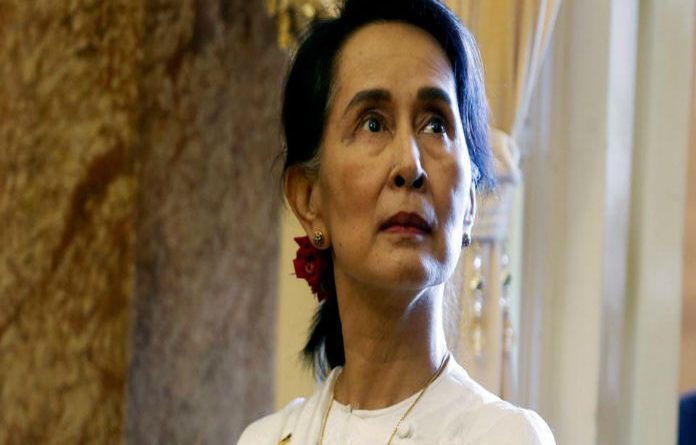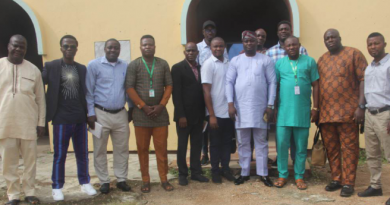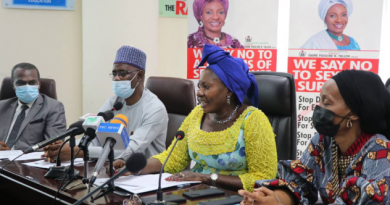Rohingya Crisis: Myanmar Suu Kyi to defend genocide charge at UN court
Anietie Udobit,Abuja
Myanmar’s leader Aung San Suu Kyi is appearing at the UN International Court of Justice (ICJ) to defend her country against accusations of genocide.
Myanmar is accused of committing atrocities against Muslim Rohingya.
Thousands of Rohingya were killed and more than 700,000 fled to neighbouring Bangladesh during an army crackdown in the Buddhist-majority country in 2017.
Myanmar has always insisted it was tackling an extremist threat.
The case has been brought by The Gambia, a small Muslim-majority west African nation, on behalf of dozens of other Muslim countries.
At the initial three-day hearing, it is asking the ICJ in The Hague to approve temporary measures to protect the Rohingya. But a final ruling on genocide may be years away.
At the start of 2017, there were one million Rohingya in Myanmar (formerly Burma), most living in Rakhine state.
But Myanmar, a mainly Buddhist country, considers them illegal immigrants and denies them citizenship.
The Rohingya have long complained of persecution, and in 2017 the military – the Tatmadaw – launched a massive military operation in Rakhine.
According to The Gambia’s submission to the ICJ, the military stands accused of “widespread and systematic clearance operations” against the Rohingya, beginning in October 2016 and expanding in August 2017.
Ms Suu Kyi is scheduled to address the court on Wednesday
The Gambia’s petition alleges that the clearances were “intended to destroy the Rohingya as a group, in whole or in part”, via mass murder, rape and setting fire to their buildings “often with inhabitants locked inside”.
A UN fact-finding mission which investigated the allegations found such compelling evidence that it said the Burmese army must be investigated for genocide against Rohingya Muslims in Rakhine.
In August, a report accused Myanmar soldiers of “routinely and systematically employing rape, gang rape, and other violent and forced sexual acts against women, girls, boys, men and transgender people”.
In May, seven Myanmar soldiers jailed for killing 10 Rohingya men and boys were released early from prison. Myanmar says its military operations targeted Rohingya militants, and the military has previously cleared itself of wrongdoing.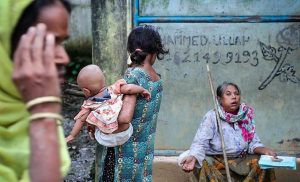
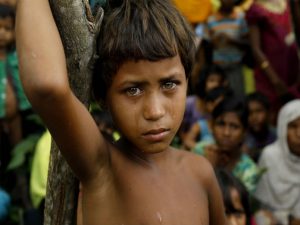
Gambia, with the support of the 57-member Organisation of Islamic Co-operation (OIC) and a team of international lawyers approached ICJ.
“All that The Gambia asks is that you tell Myanmar to stop these senseless killings, to stop these acts of barbarity that continue to shock our collective conscience, to stop this genocide of its own people,” The Gambia’s Attorney General and Justice Minister, Abubacarr M Tambadou, told the court.
His country acted after he visited a Rohingya refugee camp in Bangladesh and heard of killings, rape and torture, he told the BBC in October.
Ms Suu Kyi announced in November she would personally lead her country’s defence at The Hague – in her role as foreign affairs minister – alongside “prominent international lawyers”.
As of 30 September, there were 915,000 Rohingya refugees in camps in Bangladesh. Almost 80% arrived between August and December 2017, and in March this year, Bangladesh said it would accept no more.
In August, Bangladesh set up a voluntary return scheme – but not a single Rohingya chose to go.
Source: BBC

